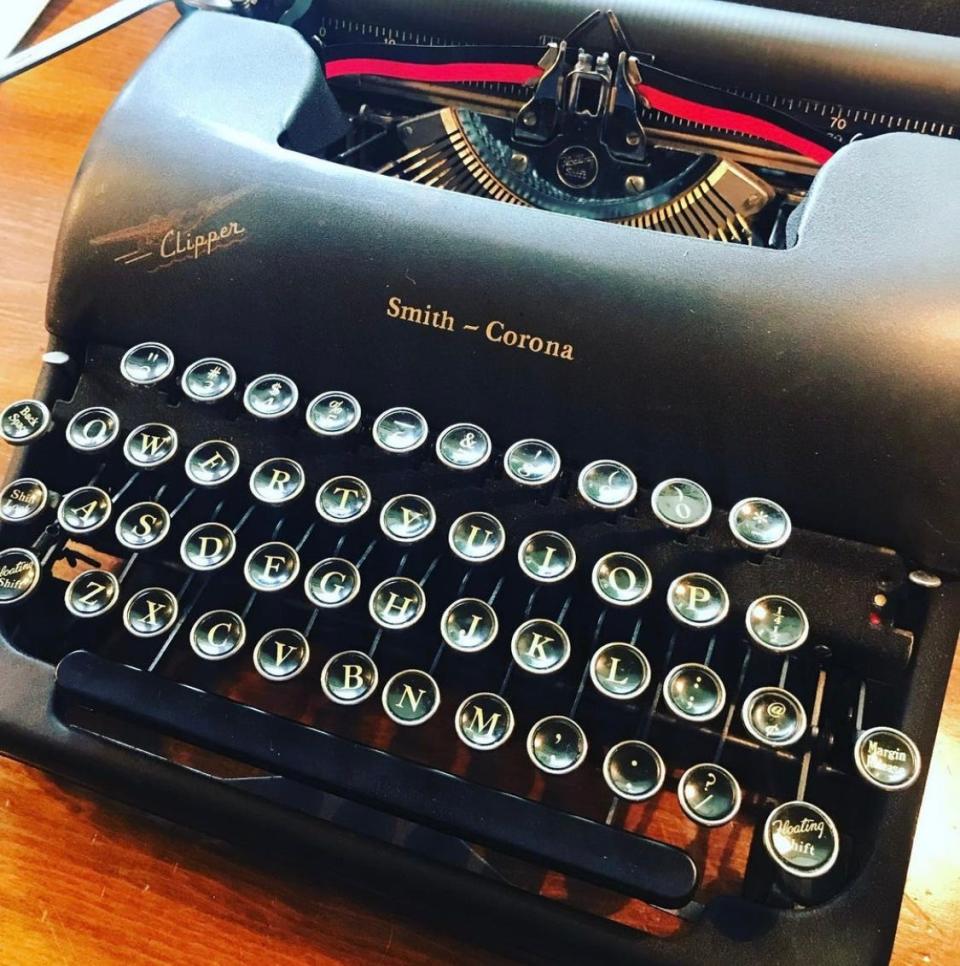Thank you, professor: What we can learn from lessons in gratitude
It’s a given that at every opportunity, we should express special gratitude for those who loom largest in our lives — our parents, our children, our closest friends and colleagues. But we might also say thank-you to those who could be regarded as members of the supporting cast.
So it has turned out to be with me. One day back in 1973, a professor of mine approached me on our college campus in Teaneck, New Jersey, smiling broadly. He complimented me on my latest article — I forget which — for the student newspaper.
Bernard F. Dick, a professor of English and communication at Fairleigh Dickinson University, then asked me whether I had ever studied Latin. He evidently suspected, given his Ph.D. in Latin and Greek, that I had, if only because, he said, my sentences were so concise, “almost tight enough to snap.” The answer was no, I claimed zero erudition in any classical language. Probably the only Latin I knew was ad infinitum and quid pro quo.
“Well,” he said, “you’re a true writer.”
I never forgot his praise. All through 16 years of formal education, though I received smatterings of encouragement from teachers here and there, he was the only one who ever called me out as qualified for the profession I intended with all my heart to pursue. But despite going on to a career as a writer for the next 45 years — as an author, essayist and reporter — I never took the opportunity to properly thank him.

From 'Twilight Zone' to thanks
Until recently.
Why? What prompted me?
I had rewatched a haunting 1962 “Twilight Zone” episode that brought my professor to mind. “The Changing of the Guard,” written by the program’s creator and host, Rod Serling, starred Donald Pleasance as an elderly teacher at a prep school who after 51 years is being forced to retire. Convinced that his life as an educator has come to naught, he contemplates suicide.
“They all come and go like ghosts,” he laments to a fellow teacher. “I gave them nothing ... nothing at all ... I was an abject, dismal failure ... Now, where do you suppose I ever got the idea that I was accomplishing anything?”
But then a miracle persuades him otherwise. Just as he prepares to fire a gun at his head, a bell tolls, mysteriously summoning him back to his classroom. There, some of his former students, no longer boys, materialize as ghosts.
They parade past him, introducing themselves, one after another — including a soldier slain at Iwo Jima and awarded the Congressional Medal of Honor — to thank him for teaching them, respectively, about patriotism, courage, loyalty, ethics and honesty.
“We wanted to thank you, professor,” says the last to speak. And the old man retires at peace with the life he’s led.
It always brings me to tears.
'I knew I was right'
Thus inspired, I searched online for an email address for Professor Dick. In the process, I learned he had retired from teaching 12 years earlier and was now, at age 85, a professor emeritus and a widely published author, most recently of “The Golden Age Musicals of Darryl F. Zanuck: The Gentleman Preferred Blondes.”
I emailed him a short note.
“It would be indecent of me to grow another day older without thanking you,” I wrote, and described the pivotal incident in question. “It probably took you all of two minutes. But it meant everything to me as an aspiring writer, and to this day it means everything to me still. So please accept my gratitude for whatever modest success I’ve achieved.”
The professor answered the next day. “I read the first major piece you published,” he said, “and knew I was right. You are a true writer.”
In so saying, he demonstrated that, more important, he was a true teacher.
We’ve since stayed in touch.
“I’ve received some flattering emails from students,” he told me, “but none as moving as yours.”
The story of Sister Marie Gerald
I took the liberty of asking him whether he had likewise ever reached out to a long-ago teacher to say thank-you — and if so, what resulted.
Professor Dick then told me about Sister Marie Gerald, a nun who taught him in seventh grade at The Catholic School in Scranton, Pennsylvania, in 1948 and 1949. She routinely assigned her class reports on American history. One day she asked her students for a paper about the Pony Express. She returned his report to him saying, “Read in class, please.”
“Please!” he said. “When did anyone ever say ‘please’ to me?”
“I came of age that year,” he went on. “My love of learning increased almost daily under her guidance. I began reading well beyond my years and reveling in my discoveries.”
He read his report to his class. “That was my introduction to public speaking,” he said, “which later landed me a career.”
About 20 years ago, Professor Dick called St. Joseph’s Convent in Scranton to ask about Sister Marie Gerald.
“I felt it was time to acknowledge a debt,” he told me.
Instead, he learned a regrettable lesson.
“Gone,” a nun bluntly informed him.
“I owe a great deal to Sister Marie Gerald,” he said. “I was too late to tell her that myself. But because she was a woman of faith, I’m certain she knows it.”
Bob Brody, who grew up in Fair Lawn, is a consultant, an essayist and the author of “Playing Catch with Strangers: A Family Guy (Reluctantly) Comes of Age.”
This article originally appeared on NorthJersey.com: NJ professor taught lessons of gratitude at Fairleigh Dickinson U

